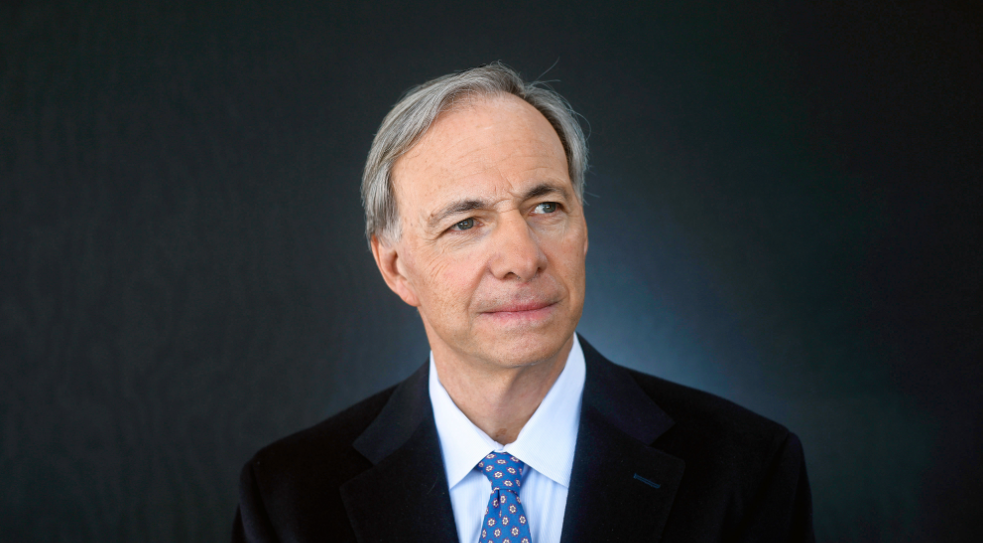 Processes can be used to optimize the things you do every day, and we spend most of our time telling you that!
Processes can be used to optimize the things you do every day, and we spend most of our time telling you that!
But where do these processes come from? Really.
Maybe you just documented your steps one day and built from there? In which case, the process evolved naturally from the actions you took intuitively. When I add big words into that description I can make it sound like a good thing. But it could be put another way.
You never took the time to think about the foundations of your process.
At the very base of all processes are a series of said and unsaid principles. In good processes and bad processes. If we want the best processes we can make, we need to understand and critically evaluate the principles which knowingly or unknowingly guide our every decision.
Ray Dalio’s text, Principles, answers the question “how does a hedge fund work?” and gives us an insight into how he built the world’s largest one, Bridgewater Associates.
Bridgewater manages $160 billion worth of assets for 350 different clients. These clients range from large corporate bodies like McDonald’s to pension and wealth funds, and even to the assets of central banks. The whole company has been built around cultivating a radical company culture, and it is this radical company culture which makes Bridgewater Associates so successful and worth investigating!
In this Process Street article, we’re going to present to you a number of the ideas contained within the book and we’re going to pull out three specific company processes Dalio has developed on the back of these principles:
But be warned: it’s likely a radical break from your office!
Ray Dalio and Bridgewater Associates

One of the things which makes Bridgewater Associates not just successful but captivating is the man himself.
His unorthodox techniques stem back to unorthodox beginnings.
Born and raised in Jackson Heights, Queens in amongst the hubbub of New York, Ray Dalio‘s background doesn’t scream high finance and corporate culture.
His father, Marino Dallolio, was a jazz musician who played the sax and clarinet around the glitzy clubs of Manhattan’s bustling nightlife. Dalio’s mother stayed at home.
As legend goes, Dalio’s first foray into investing came when he was only 12 years old. He bought $300 of airline shares and by good fortune tripled his investment after Northeast Airlines merged with another company. Dalio now had a little taste of success – he went off to study finance in college to continue this investing zeal.
Dalio ended up doing what many in finance might find themselves doing: he picked up a job on the stock market floor and bounced around different companies, plying his trade with each and expanding his knowledge.
In 1975, this all changed. From an office in his New York apartment, Ray Dalio founded Bridgewater Associates and begun to find its niche.
At first, Bridgewater was servicing a number of corporate clients providing financial advice, particularly around currency and interest rates. But as success grew, Bridgewater begun to shift slightly to take on government clients and huge multinationals like McDonald’s. Their subscription report Daily Observations began to take off and was being read by industry leaders around the world. This boom boosted the business and its reputation. Their continuing high rates of return for clients consolidated this reputation.
Where Bridgewater succeeded was in innovating within the financial space.
Things like inflation-indexed bonds, currency overlay, emerging market debt, and super long duration bonds all acted as strategies which separated Bridgewater from other similar institutions.
Bridgewater weren’t scared to do things differently.
And this all comes back to the principles…
The personal principles of the entrepreneur

Personal principles are instilled by an entrepreneur into their business whether they are aware of it or not.
Understanding your own motivations allows you to critically analyze your own approaches and tinker with them so that you decide how your organization will operate.
Like anything else in running a business, planning and preparation is key. All activities are guided by principles – spoken or unspoken – so knowing this and enacting this will lay the foundations for all your operations.
For Dalio, the principles you build your business on are like the initial premises upon which we construct grand arguments. The easiest and most common thing to get wrong is not the detail but the foundations.
The key concept in Principles, for me, is the supremacy of Truth. Not just whether something is right or wrong, but the continual unrelenting search for whether something is right or wrong. Sometimes in the text, truth is asserted in a situation not because Dalio knows it to be 100% true, but because that is the best answer which can be reasonably found in that given scenario and is therefore truth:
Truth —more precisely, an accurate understanding of reality— is the essential foundation for producing good outcomes. (pg.12)
It appears that truth for Dalio isn’t simply a right or wrong dichotomy but a process. Truth is something grown over time – something which inherently contains untruths and mistakes. By following a constant search for truth, Dalio feels he narrows in on truth all the time in a never-ending battle with the changing reality around him; equally, around his colleagues.
One philosophical critique of Dalio’s concept of Truth is that it is grounded in the naturalistic argument:
In other words, I believe that understanding what is good is obtained by looking at the way the world works and figuring out how to operate in harmony with it to help it (and yourself) evolve. But it is not obvious, and it is sometimes difficult to accept. (pg.12)
He expands further on this to emphasize the importance of defining good and bad via our understanding of nature. Many would agree with Dalio on this point, but given his core belief that we have to analyze our central principles in order to find truth it would be remiss not to mention that this naturalistic perspective has been contentious since the days of David Hume in the 1700s, and further work on this has fueled philosophical discussion from G. E. Moore onwards.
Dalio’s emphasis on truth can be seen in his concepts of:
- Radical Truth – Think of this as the supreme importance of truth at all times.
- Radical Transparency – Answers can only reach truth if they have all the information and data available to them. Transparency, in this sense, facilitates truth – particularly when managing people.
- Getting in Synch – Creating shared truths which teams can operate around to maximize the effectiveness of these truth-realizations in a practical sense.
The concept of radical truth

Radical truth and company culture go hand in hand. For Dalio the two are the same – one cannot exist without the other.
Imagine having a conversation about politics or business, but imagine that conversation occurring in two different ways: one with a very close friend, family member, or spouse, and the other with an acquaintance or colleague you don’t know very well. The kind of conversation you have is different.
You feel different levels of comfort in expressing yourself. Moreover, you feel different levels of comfort in critiquing the other person – as they feel the same to you.
Being able to be 100% open and honest with someone is difficult, but it results in greater transparency and greater analysis of things which are said, particularly within an organizational structure. This idea of strongly critiquing another person isn’t new — Plato’s work is written as dialogues and conversations where people critique each other back and forth to find truth. Dialogue and discourse has long been recognize as a route to knowledge.
For Dalio, truth is not always easy. In fact, the difficulty of facing up to truth demonstrates to us the importance of doing so:
Understanding, accepting, and knowing how to effectively deal with reality are crucial for achieving success. Having truth on your side is extremely powerful. While the truth itself may be scary—you have a weakness, you have a deadly disease, etc.—knowing the truth will allow you to deal with your situation better. (pg.56)
Without the circumstances to allow this discourse to occur, mistakes will fall through the cracks.
Moreover, being truthful with one another is the best way to be truthful in one’s own decisions and actions:
Being truthful, and letting others be truthful with you, allows you to explore your own thoughts and exposes you to the feedback that is essential for your learning. (pg.56)
The synthesis of this can be found in Radical Transparency where you have to create systems which are open and not be afraid of other people seeing what you do and say, when you’re right or wrong:
Provide people with as much exposure as possible to what’s going on around them. Allowing people direct access lets them form their own views and greatly enhances accuracy and the pursuit of truth. Winston Churchill said, “There is no worse course in leadership than to hold out false hopes soon to be swept away.” The candid question-and-answer process allows people to probe your thinking. You can then modify your thinking to get at the best possible answer, reinforcing your confidence that you’re on the best possible path. (pg.57)
One example of this in practice is to record all meetings and make them available for others to listen to, watch, or read. The only exception, of course, is where confidential materials are concerned.
With practices like that, everyone can learn from every other person’s search for truth.
We see these concepts of Radical Truth and Radical Transparency reflected in the 5 points Dalio makes to describe the company culture he strives to create. His company culture is centered around having employees who:
- Work for what they want and not for what others want of them,
- Come up with the best independent opinions they can muster to move toward their goals,
- Stress-test their opinions by having the smartest people they can find to challenge them so they can find out where they are wrong,
- Are wary about overconfidence, and good at not knowing,
- Wrestle with reality, experiencing the results of their decisions, and reflecting on what they did to produce them so that they can improve. (pg.40)
Ray Dalio’s guidelines for truth
- Hold truth to be the most important thing
- Never say anything about another person which you wouldn’t say to their face
- Loyalty should never take precedence over truth
- Never allow for dishonesty
- Record everything and make it open for all to see – Radical Transparency.
- Lead by example in regards to truth
How to conduct yourself in the world of Ray Dalio

The Ray Dalio approach is combative but self aware; it is encouraged to be assertive but to be open to new ideas and to understand that you may be wrong.
If you think you are right you should fight your corner and argue every step of the way. But if you realize someone else has the better argument you should be ready and prepared to change your mind and fight just as hard for the other person’s perspective.
This is key to understanding that you don’t have ownership over ideas.
All ideas are simple routes to truth. If your idea is good then it is good because it is closest to truth, not because it is your idea. Recognizing this allows you to fight for ideas but not get so attached that it clouds your judgement; all decision making is a collective process of distilling truth from ideas.
Beyond challenging your own ideas, you should be willing and able to challenge those of people above or below you within the organization’s hierarchy:
In some companies, employees hide their employer’s mistakes, and employers do the same in return. In these places, openly expressing your concerns is considered disloyal, and discouraged. Because it prevents people from bringing their mistakes and weaknesses to the surface and because it encourages deception and eliminates the subordinates’ right of appeal, unhealthy loyalty stands in the way of improvement. I believe in a truer, healthier form of loyalty, which does the opposite. Healthy loyalty fosters improvement through openly addressing mistakes and weaknesses. (pg.57)
Despite this, there comes a point in time where decisions need to be made. In a search for truth, sometimes two conflicting ideas will both be near the truth – there are sometimes multiple right answers in life.
“There are more than two ways to skin a cat”. Your assessment of how responsible parties are doing their jobs should not be based on whether they’re doing it your way but whether they’re doing it in a good way. (pg.62/63)
You have to be prepared to make decisions and live with those decisions while also being prepared to live with the decisions made by another person even if it was not your preferred approach. Just because you disagree with something doesn’t mean it is wrong, and you need to recognize when you are disagreeing usefully or not. If no decisions are made then no action is taken.
Truth means nothing unless it is acted upon.
In order to maintain these assertive principles in the workplace without forever arguing instead of doing, Dalio defines three different modes of communication. In conversation you need to understand what your purpose is:
- Discussion – working together to come to a conclusion
- Debate – working against each other to find truth
- Teaching – passing on knowledge to another person to assist in finding truth
All this leads to Getting in Synch – truth should be collective and recognized by all:
Getting in synch helps you achieve better answers through considering alternative viewpoints. It can take the forms of asking, debating, discussing, and teaching how things should be done. Sometimes it is to make our views on our strengths, weaknesses, and values transparent in order to reach the understanding that helps us move forward. (pg. 61)
Being able to work together with the team to rigorously create shared truths allows a team to operate at its best.
Ray Dalio’s approach to managing people
- The people are the most important part of an organization
- Hire people who aren’t just good at what they do, but think like you do. people who prioritise similar things
- Hire people who think less about tasks and more about goals
- All people are different – this presents opportunities
- Perform personality assessments to help you quantify people’s differences and their strengths
- As part of the pursuit of radical truth, have employees be open with one another about their strengths and weaknesses
- Not everyone will get on or mix well and it’s your responsibility to both manage that and accept that
3 Ray Dalio Processes to Use in Your Business
Ray Dalio’s Meeting Process
Ray Dalio’s Hiring Process
Ray Dalio’s Process Improvement Method
Be radical and try Dalio’s methods in your business
Dalio’s perspective of radical truth also requires radical action. If someone isn’t fit for the job the solution is to fire them as soon as possible. Truth in this scenario is that they aren’t the right fit, therefore the action must act on that truth.
As painful as it might be, truth comes first.
The principles the company is built on dictate the decisions made throughout the organization. From top to bottom. All processes stem from these decisions and this is what constructs the consistent company culture.
Dalio’s world can look a little cult-like from the outside. A painful combative environment where everyone is forced to not only accept their own weaknesses but share them and take ownership of them. This management process has a cleansing feel to it – like confession to a priest.
The ultimate result is a team who are as open to each other as to their closest friends and family. In Dalio’s world this results in better decisions.
When we look at Bridgewater’s meteoric rise and continuing high performance, it’s hard to argue against him.
What principles drive you in your business? Let us know in the comments below!







 Workflows
Workflows Projects
Projects Data Sets
Data Sets Forms
Forms Pages
Pages Automations
Automations Analytics
Analytics Apps
Apps Integrations
Integrations
 Property management
Property management
 Human resources
Human resources
 Customer management
Customer management
 Information technology
Information technology



Adam Henshall
I manage the content for Process Street and dabble in other projects inc language exchange app Idyoma on the side. Living in Sevilla in the south of Spain, my current hobby is learning Spanish! @adam_h_h on Twitter. Subscribe to my email newsletter here on Substack: Trust The Process. Or come join the conversation on Reddit at r/ProcessManagement.